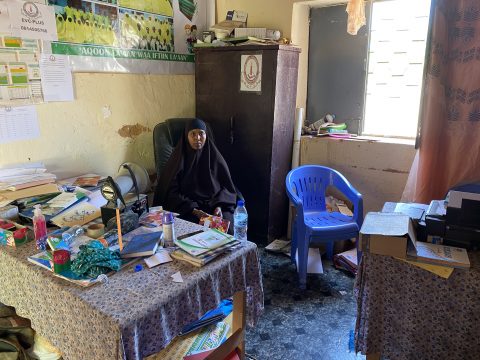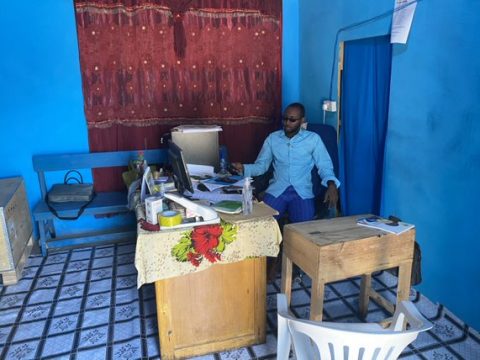Teacher training improves learning outcomes and the safety of schools in Somalia
The school leadership and management training for head and deputy teachers in the Hudur District of Somalia’s South West State is part of an Education in Emergencies response supported by EU Humanitarian Aid (ECHO).
Protracted conflicts and wars combined with recurrent droughts and famine have made it difficult for Somalia’s school system to flourish. Civil conflict, an underdeveloped government and natural disasters have all served to stunt the growth of education in Somalia; however, with the intervention of the international community, the quality of education slowly shows signs of improvement.
Both government and non-profit organizations are developing methods to increase access to quality schools. With the support of EU Humanitarian Aid (ECHO), FCA works with an integrated and inclusive Education in Emergencies response for crisis-affected children in hard-to-reach areas of Somalia. In the Hudur district in the South West State of Somalia, the project increases safe and quality education and learning opportunities for crisis-affected boys and girls both among Internally Displace People (IDP) and host communities.
Still, many hurdles remain. Severe poverty and the nomadic culture that pervades more than half of the population makes sending children to traditional schools impractical and impossible for many families. Hence, many children are dropping out or never attended a lesson in the first place.
Vast gender disparity is another factor that plagues the education system. Less than half of all Somali students are girl, and only a quarter of women between 15 and 24 years of age are literate, versus 38 per cent of men.
In this context, FCA conducted a three-day school leadership and management training for head and deputy teachers at all schools in Hudur District. The quality and quantity of teachers are critical components in achieving the goal of rebuilding the education system.
Major challenges are impeding teacher education quality such as unclear accreditation, lack of teacher training institutions, poor quality assurance system, inadequate funding and disparities in teacher qualifications in Somalia. Poor school leadership further exacerbated this.
The teacher training aimed to help equip the headteachers and the deputy headteachers with the necessary leadership skills and knowledge to improve quality and learning outcomes and the safe learning environment at schools.

Lul Mohamed Nur in her school office in Hudur, Somalia.
Lul Mohamed Nur taught for ten years at her school in Hudur, and it was due to her extensive experience that she was promoted to the position of headteacher two years ago. According to Lul, the training gave her insights on how to manage the school overall administrative structure.
“I feel I have gained new knowledge, which allows me to enhance my career as a schoolteacher in the future. Managing a school attended by close to one thousand students and their teachers is challenging and puts me in a unique position as a female headteacher”, Lul says.
“Before the training, I could not manage the school properly. I want to thank the organization and the facilitators of the training. The leadership and management skills I gained from the training have improved my skills and knowledge in managing and leading the school. I can now evaluate my school’s teachers daily for the interest of my students’ overall learning outcome.”

Dahir Hilowle Sambul says that the training increased the quality of learning in his school in Hudur, Somalia.
Dahir Hilowle Sambul is also one of the six headteachers who benefitted from the training. His school is attended by 1,698 students. Dahir says the training helps him develop effective teaching methods and raise the achievement of his students.
“I am glad that I was allowed the opportunity to participate in this training, it was so useful. The training has helped me carry out my day-to-day tasks, such as assessing the performance of students and teachers. This has increased the quality of learning in my school. One month after the training, every subject’s overall average score per class has improved compared to the previous month. My relationship with the school community has also improved; now they are supporting me in running the school affair unlike before when I ran the school’s management alone’ Dahir says.